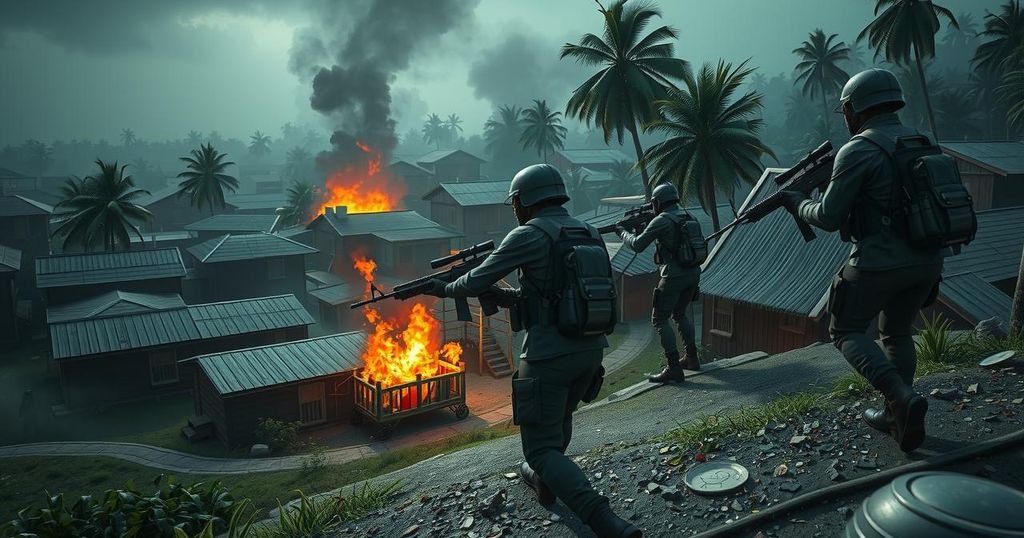Rwanda-backed M23 rebels have seized the town of Masisi in DR Congo, marking a significant territorial gain in the volatile North Kivu province. This follows the capture of Katale and highlights an ongoing humanitarian crisis as the M23 extends its control since 2021. Despite mediation efforts, negotiations have stalled, raising concerns about the local and international ramifications of the conflict.
Rebel forces affiliated with Rwanda have successfully captured the town of Masisi in the eastern Democratic Republic of Congo (DR Congo), marking their second territorial gain in two days within the mineral-rich North Kivu province. The M23 group has systematically seized large areas of eastern DR Congo since 2021, displacing hundreds of thousands of residents. Despite Angola’s mediation efforts between Congolese President Félix Tshisekedi and Rwandan President Paul Kagame, negotiations collapsed last month.
Alexis Bahunga, a member of North Kivu’s provincial assembly, expressed his alarm at the recent capture, stating it exacerbates a dire humanitarian crisis and called for a reinforcement of military efforts in the region. A local resident reported that the M23 convened a meeting with the town’s people, proclaiming their intention to “liberate the country.” Congolese authorities have not yet issued a statement regarding the loss of Masisi, which has a population of roughly 40,000 and serves as its territorial capital.
Masisi is located approximately 80 kilometers north of Goma, the capital of North Kivu, which the M23 previously occupied in 2012. The rebels also seized the neighboring town of Katale shortly before Masisi. In the previous year, concerns grew that the M23 would advance toward Goma, a populous city of about two million residents, but fighting subsided until early December when hostilities resumed. Rwanda acknowledged a United Nations report from July claiming it had around 4,000 troops assisting the M23 forces in DR Congo, while accusing the Congolese government of inadequately addressing the ongoing conflict. The Rwandan government historically contended that the Congolese authorities collaborated with individuals associated with the 1994 Rwandan genocide.
The M23 emerged from a preceding rebel faction in 2012, originally citing the protection of the Tutsi minority, who faced systematic persecution in eastern DR Congo. Nevertheless, critics assert that Rwanda exploits the M23 to plunder the region’s mineral wealth, including gold, cobalt, and tantalum, resources integral to modern technology such as mobile phones and electric vehicle batteries. Notably, last month, the Congolese government initiated legal action against Apple concerning the use of “blood minerals,” prompting the company to cease its mineral procurements from the country.
The recent actions of Rwanda-backed M23 rebels in the Democratic Republic of Congo highlight a complex geopolitical crisis in the region. The M23 group, formed in 2012, claims to protect the Tutsi population but has been accused of perpetuating violence and exploitation in eastern DR Congo. This area, laden with valuable minerals, has witnessed significant turmoil, leading to widespread displacement and humanitarian challenges. The failed mediation efforts indicate the ongoing struggle between the Congolese government and external influences, primarily Rwanda, with historical roots that complicate peace prospects.
In summary, the M23’s rapid territorial gains in eastern DR Congo underscore a worsening humanitarian crisis and highlight the pervasive instability in the region. The lack of government response and the underlying geopolitical tensions, particularly involving Rwanda, pose significant challenges to restoring peace. As the situation evolves, the implications for local populations and international stakeholders remain critical considerations for future diplomatic efforts.
Original Source: www.bbc.com






